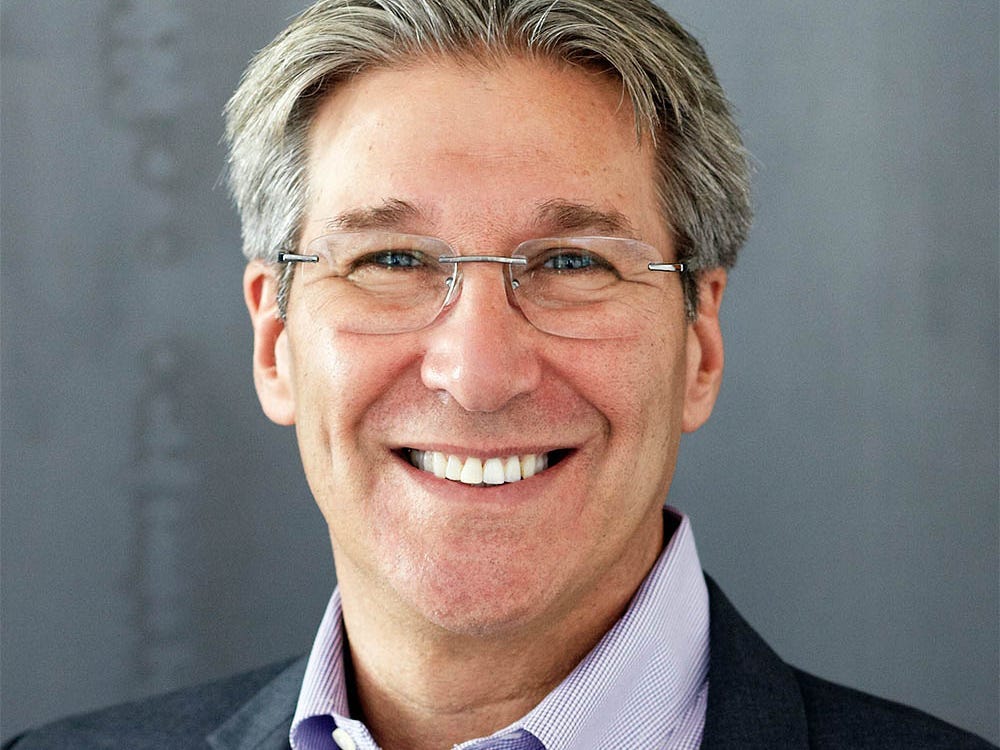
- Andy Cohen, Gensler co-CEO, is one of Insider's 100 People Transforming Business in 2021.
- Cohen believes people should have the ability to choose their careers and how they work.
- Gensler is designing offices that mirror work-from-home comfort and give employees more choice.
- Visit Insider's Transforming Business homepage for more stories.
Due to the COVID-19 pandemic, office buildings of the future are being designed with touchless elevator buttons, facial-recognition technology, and open-air sliding doors.
But, most importantly, they're being designed to give employees a choice, says Andy Cohen, co-CEO of Gensler.
Cohen was named one of Insider's 100 People Transforming Business in 2021 in the 'Future of Work' category for his work at Gensler — the largest architecture firm in the world with 6,000 employees. Cohen has worked at the firm since 1981 and served as co-CEO with Diane Hoskins for 17 years.
Cohen sat down with Insider to discuss his career, Gensler's work, and how the ability to choose will shape the offices and careers of the future.
The following interview has been edited for length and clarity.
Can you share a little bit about yourself and your career journey?
My grandfather, and then father ran, believe it or not, a dairy store on the lower east side of New York. And I worked there most of my early life through college, and actually thought that I was going to be owning and running the dairy store for the rest of my life.
Unfortunately, when I was in high school, my father found out he had cancer, and so we had a decision to make in life. Was I going to pursue design or was I going to run the store? And my dad said to me, and this is something profound that I tell to young people all the time, he said, "Go follow your passions, follow what you love to do, because if you love what you do, you'll never work a day in your life." And that's exactly the way I feel.
How has work changed during your time with Gensler, and how has COVID-19 specifically changed work?
We think that the office is vital to an organization's ethos, to their vision, to their future, to their purpose. And so we see the future of the office being incredibly vital. Is it going to be different? Absolutely. The idea that the office is just rows and rows of desks is going away.
When you work from home, you have the ability to work at a desk, and work in the living room, you can work in the den. We're creating those environments in the office, that flexibility and sense of choice that when you go to the office, you're going to pick and choose where you'd like to sit for the day. And then the big change in offices that we're seeing is the idea of touchless environments.
It's about creating great experiences for people.
What we're lacking in these Zoom boxes that we're sitting in right now is that experience. The generic kind of a cool office that was being done three years ago is now going to be much more purposeful, much more about people, much more about their needs and desires, much more about sustainability.
You've talked about how collaboration doesn't necessarily happen over Zoom. So how has your coworking structure worked while online?
We have in our firm, co-leadership in most leadership roles, including the CEO role.
So my partner is really important to mention, Diane Hoskins, and together we've been at this for close to 17 years as co-CEOs. Again, the glue that holds us together is our culture. We call it a one firm culture, and we believe that most companies are now moving to this more flatter organizational structure and that the office might be in two or three or five or 50 locations.
It's the idea that work happens everywhere, and that you have that sense of choice of where work should take place based on what you're doing at that moment, what kind of work environment you need to support your work, whether you're working in a third place or you're working in the office, or from home, and that idea that you can innovate, collaborate together around the world.
And that's the future of work. The future of work is about choice, the environment matters and design matters and that ability to allow people to work in different locations at the same time is the future.

